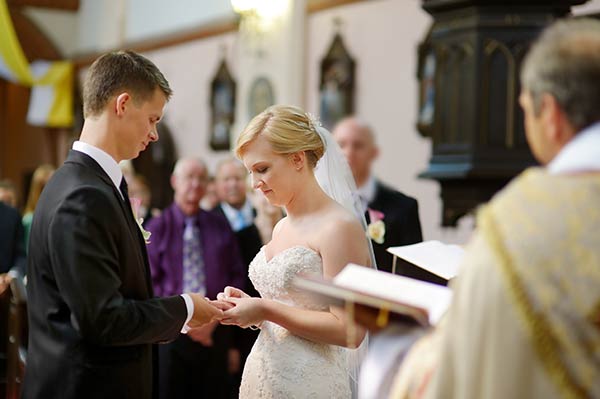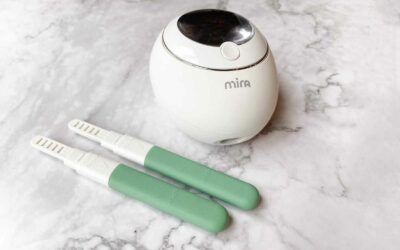Just like there’s no one “best” NFP method, there’s no one “best” NFP instructor for everyone either.
The fit between you and your instructor matters.
So it’s worth taking the time to find someone who both equips you with education and you feel comfortable with. I’m a Marquette Method instructor, but this list of questions is useful to anyone who is looking to hire an NFP instructor, regardless of the method.
Here is a list of things you may want consider/ask while discerning whether an instructor would be a good fit for you. You don’t need to ask all of these, of course—find the ones that matter to your most and ask away.
Questions to Ask an NFP Instructor Before Hiring Them
1. What drew you to teaching this and this method?
Find out their “why”. What is their driving force? Are they passionate about women’s health and want to support families on their NFP journey? Is it the flexible schedule or the paycheck? Ideally, you want someone who is going to care about your physical, spiritual, and emotional health.
2. Do you personally use the method? What do you like about it? What don’t you like about it?
Find someone who is invested. Someone who is going to celebrate with you on the mountaintops and help you find value in the valleys. Asking them to be forthcoming with the challenges of using the method equips you to make an informed decision.
3. How effective is the method?
Be sure to ask about perfect use and typical use effectiveness rates, as well as effectiveness rates for any special circumstances you might be experiencing, such as NFP while breastfeeding.
Perfect use effectiveness shows how well the method, when used flawlessly, works to prevent pregnancy. Whereas typical use effectiveness accounts for human error. It is helpful to ask how the method compares to other forms of NFP as well as contraceptive use.
4. What medical training do you have?
The Marquette Institute of NFP requires all Marquette Method instructors to be health professionals such as registered nurses who have a bachelor’s or higher level of education, physicians, physician assistants, or registered dieticians. This requirement is unique compared to other forms of NFP. They must have a current license in good standing. You can take it one step further and ask if they specialized in a certain area such as women’s reproductive health and if they still practice.
5. What type of professional training or certifications do you have to teach this method? Where did you get your training?
Some instructors are preceptor students who are overseen by preceptors during the practicum component of their training program. They may provide instruction at a discounted rate to meet their course requirements. Other instructors have met course requirements and have not yet become certified. Fully certified instructors have met both course requirements and passed a certification exam. Certification looks different depending on the method. For example, one certification exam is currently multiple choice to meet a minimum standard while another is short answer questions lasting three hours in length with feedback and correction until you achieve 100% competency.
6. When did you get your training? How much experience do you have? How many client couples have you taught?
Experience is invaluable. Knowing how long the instructor has been practicing and how many couples they have taught allows you to set realistic expectations for your time together. Being a part of a group that has collectively taught over 6,000 clients will look vastly different than being an individual’s first client.
7. What ongoing professional development activities do you participate in? Do you keep on top of recent NFP research?
Your mom and her mom may have learned about a method years ago and can give you great advice. Yet, the reality is times have changed and so has the world of NFP. You want an instructor that provides education and guidance based on current evidence-based practice. Instructors are encouraged to be members of professional associations and participate in research, present case studies, actively teach clients, and tap into the community of other instructors.
8. Do you have experience with <insert your fertility concern here>?
If you have any specific concerns about your fertility (e.g. breastfeeding, PCOS, irregular cycles, a prior surprising pregnancy, transitioning off hormonal birth control, perimenopause, etc.), ask the instructor if they have experience with your specific concern or condition—how did they manage this situation with clients in the past?
While the dreamy 28-day cycle with hormones in perfect balance is out there somewhere, it is not a part of every woman’s story. Your story may be unique in the details that complicate your medical history, yet you are not alone.
Find an instructor who confidently knows how to help you navigate those cycles that are not so straightforward. Ask about which monitor or tracking method is likely to set you up for success.
9. How much does your NFP instruction cost?
There are a variety of price points when it comes to NFP instruction. You can find anything from free resources offered online, to a one-time session with an instructor at their desired rate, to discounted talks provided at churches, to packaged deals when working with a company. Before you are finished with the consult, know what you are paying for. Ask specifics to find out exactly what is included and what is not.
10. How much does it cost to use the method including both upfront and ongoing costs?
The previous question addressed the cost of instruction. Other categories of cost to consider are the upfront costs such as a monitor and ongoing costs such as test sticks. It is also helpful to think through what will be needed each cycle and plan accordingly. Creative ways to save include using insurance, buying a used monitor, finding a good deal, using a discount code, or purchasing recurrent items with a subscribe and save option.
11. Do you offer group classes, private instruction, or both?
You get to decide where you will fit in. Are you a mom with a teenage daughter and want to find a weekend retreat to learn about cycle prep together? That’s an option. Are you intent on avoiding a pregnancy and desire education specifically tailored to you? That’s an option, too. Do you turn red at the thought of talking about NFP? Listening to a pre-recorded video or sitting in on a webinar may be more of your style. Go for it!
12. How many classes/sessions should I expect before I’m able to use the method independently?
Are you the kind of person who wants to have all the information upfront with the option to reach out on your own time? You can choose a method where you can be up and running in 90 minutes. Do you do better with smaller chunks spaced further apart? You can choose a method that allows for time in between each cycle to implement instruction and gain feedback. Again, you get to call the shots. Either way, it is helpful to ask what will be covered in the session(s) and what is expected from you.
13. Does instruction change based on the season of life I am in?
This question requires a bit of forethought. Learning the most applicable protocol for the season you are in is useful. Part of that knowledge is knowing the inclusion and exclusion criteria for following those initial instructions. Most of the time, guidelines are going to be modified based on change in your circumstances. For example, if you were breastfeeding and then fully weaned your child, you can expect a fluctuation in your hormone levels. Taking that change into account can lead to revised recommendations from your instructor.
14. Will I need to learn a separate protocol if I am postpartum? If postpartum, when should I learn and/or implement the method?
There are different trains of thought whenever it comes to learning a postpartum method. Some methods recommend you begin charting as early as two weeks postpartum if you are formula feeding or partially breastfeeding. Other methods recommend you begin charting closer to the six to eight-week mark if you are exclusively breastfeeding. Some couples prefer to schedule their main teaching session(s) while still pregnant and then do a mini refresher when caring for a newborn. Others prefer to learn the method postpartum right before they resume intimacy so that the education can be readily implemented. Regardless of the timing, you should be able to schedule a session in advance and take one more thing off of your plate. Find an instructor who welcomes your baby to attend the session(s), one who will prioritize the person over the product.
15. What happens if you (the instructor) get sick or need to take a leave of absence?
Whether it is maternity leave, vacation, or an illness…life happens. If you are paying for a service, it is fitting to ask what preparations are in place for the service to be continued. If your instructor tells you that you can expect an email response within 24-48 hours, how do they intend to communicate and follow through in these situations? Will they have a colleague cover for them?
16. How does follow-up work in your practice?
You are hiring an NFP instructor so that you don’t have to fly solo. You should be supported whether you are entering into puberty or menopause and everywhere in between. This is another great area to ask detailed questions so that you can have a plan in place. You can ask how long access to your instructor lasts and if there is an option to renew. If so, how much does the renewal cost? You may ask how to schedule follow-up sessions. It is important to ask about their standard response time when you have questions, concerns, or need help troubleshooting. You deserve promptness and reliability.
17. What is the best way to contact you?
This question helps clarify how communication will proceed whether that is through email, text, or phone. You can also ask next steps such as the registration process, payment details, or scheduling.
And finally, one question to ask yourself…
Just like choosing a doctor, choosing an NFP instructor is a very personal choice. You’ll be discussing sensitive topics, so it’s quite important that you feel comfortable asking questions and confident that you’ll get expert, informed answers. Once you’re done asking these questions in an interview or consultation with your prospective NFP instructor, it’s time to ask yourself a question… do you feel comfortable with and confident about this instructor and the method they teach?
If the answer is “yes” then … you’re done with your search!





